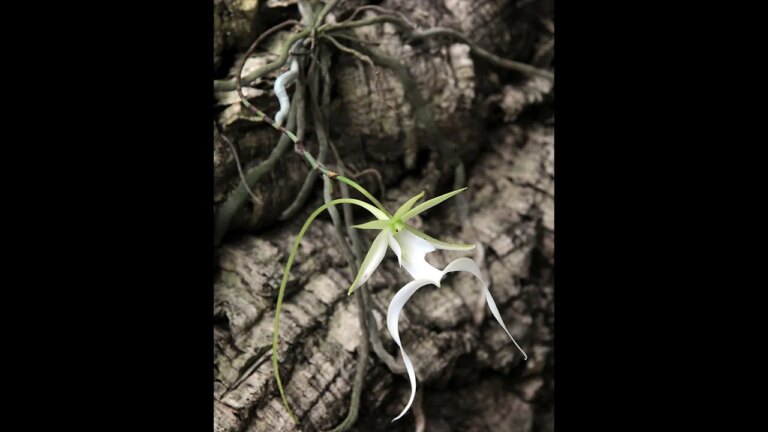Rare Ghost Orchid Faces Immediate Protection as Endangered Species
A group of environmental organizations has taken legal action, urging the United States to swiftly designate the rare ghost orchid, primarily found in Florida and Cuba, as an endangered species. These groups argue that federal authorities are unjustly delaying the decision.
In a lawsuit filed in a Florida federal court, the plaintiffs, including The Institute for Regional Conservation, the Center for Biological Diversity, and the National Parks Conservation Association, contend that the U.S. Fish and Wildlife Service has missed the orchid’s status deadline, with a potential decision delayed until late 2026.
George Gann, the executive director at The Institute for Regional Conservation, expressed regret at the need for the lawsuit. He emphasized, “The world-famous and critically imperiled ghost orchid is running out of time. Only the Endangered Species Act can provide both the deterrence against poaching and the resources needed to respond to growing threats from hurricanes, invasive species, and counterproductive management decisions such as increased oil exploration.”
Ghost Orchids: A Delicate Rarity
Ghost orchids primarily inhabit the Big Cypress National Preserve, the Florida Panther National Wildlife Refuge, Fakahatchee Strand Preserve State Park, Audubon’s Corkscrew Swamp Sanctuary in Florida, and certain restricted areas in Cuba.
Described as having long, delicate petals and a nectar spur, ghost orchids have become a symbol of South Florida’s landscape. Human development, habitat destruction, hydrologic changes, and over-collecting have contributed to the decline of ghost orchid populations.
According to the lawsuit, the global ghost orchid population has plummeted by more than 90%, with a 50% decline in Florida, leaving only about 1,500 plants in the state. Their rarity and beauty have made them targets for thieves, leading to their illegal sale online.
A Ghostly Beauty
The lawsuit poetically describes ghost orchids as having roots and stems so well camouflaged on trees that their white flowers appear to float in mid-air, hence the name “ghost orchid.”
Environmental groups argue that hurricanes, sea-level rise, and wildfires exacerbated by climate change pose additional threats to these delicate plants. Hurricanes like Ian, which struck southwest Florida in 2022, have contributed to orchid loss.
Urgent Action Required
The lawsuit seeks to compel the Fish and Wildlife Service to make an endangered species determination for the ghost orchid within a 12-month timeframe, which, according to the environmental groups, the agency has already missed.
Elise Bennett, Florida and Caribbean director at the Center for Biological Diversity, warns, “Delaying protections will make it that much harder to draw ghost orchids back from the brink of extinction. These spirits of the swamp need all the help they can get in the face of habitat destruction and increasingly intense storms.”
This legal action underscores the critical importance of swift action to protect this unique and vulnerable species before it disappears forever.

